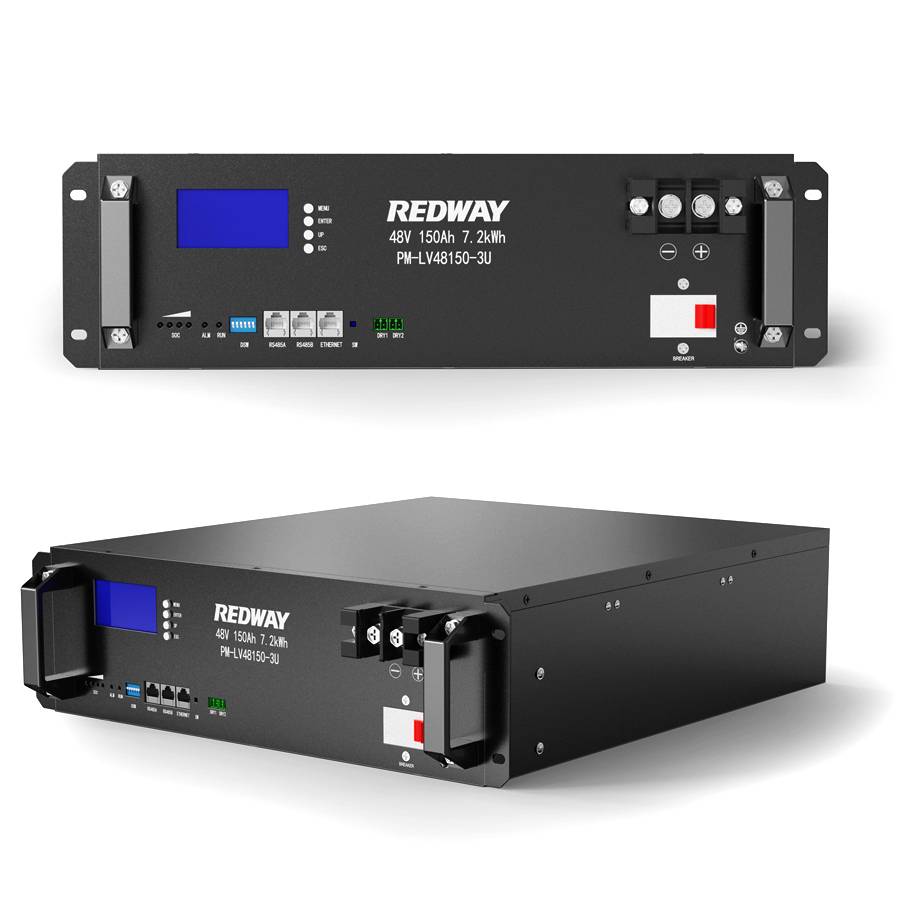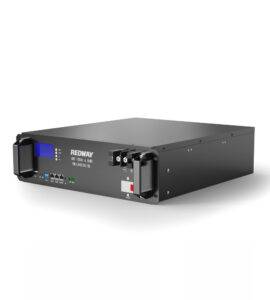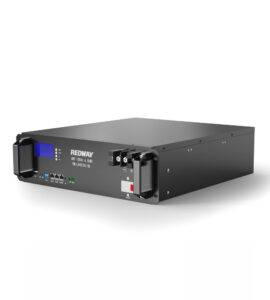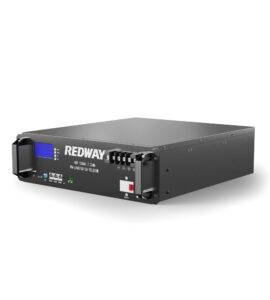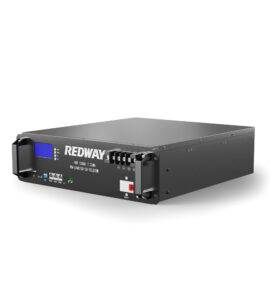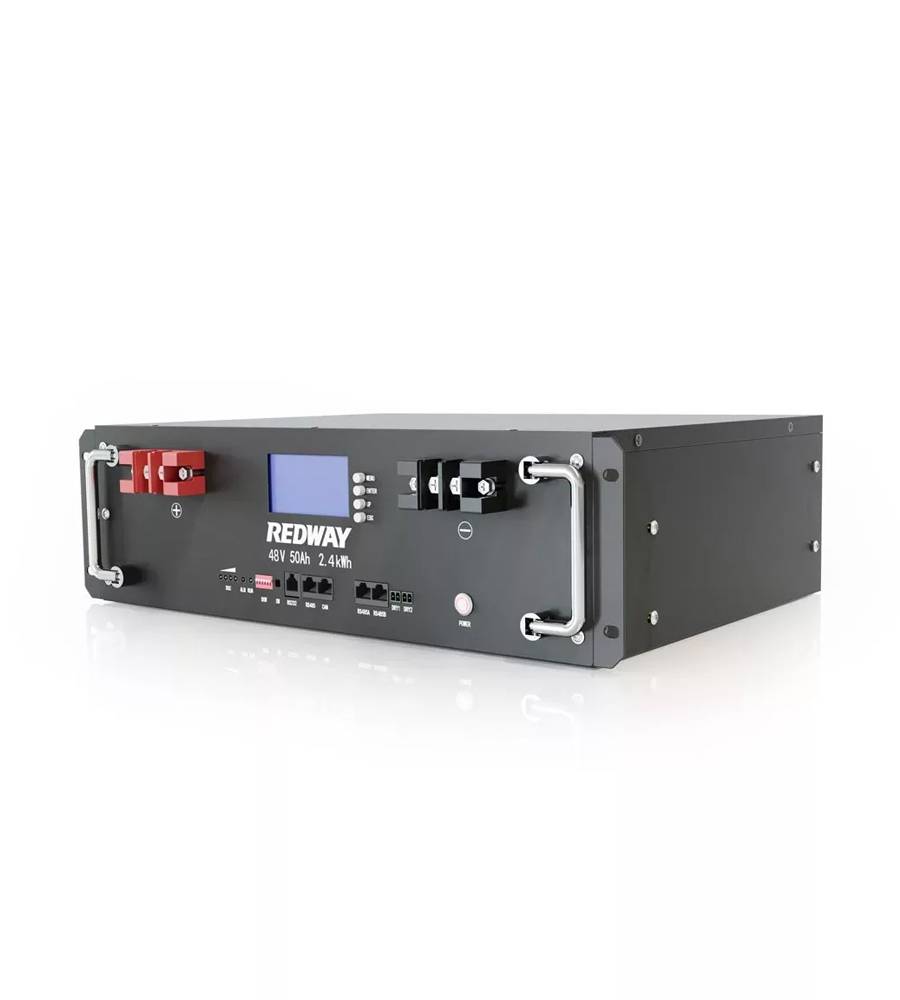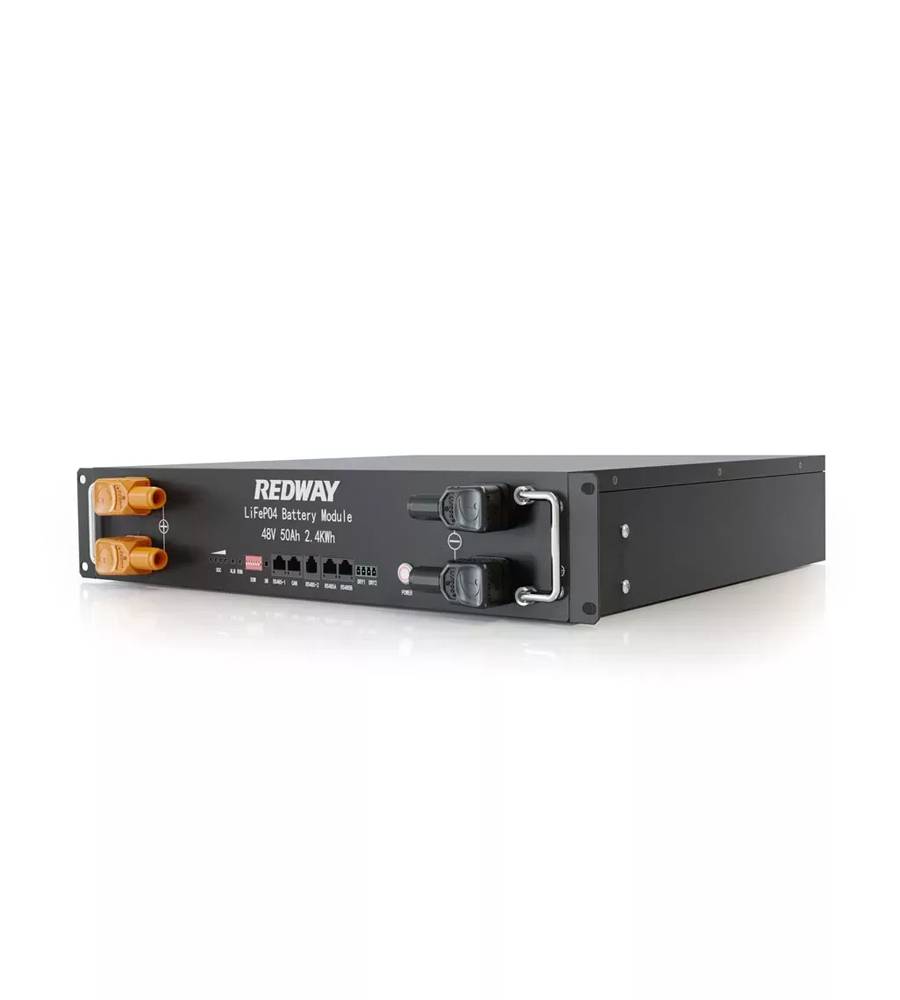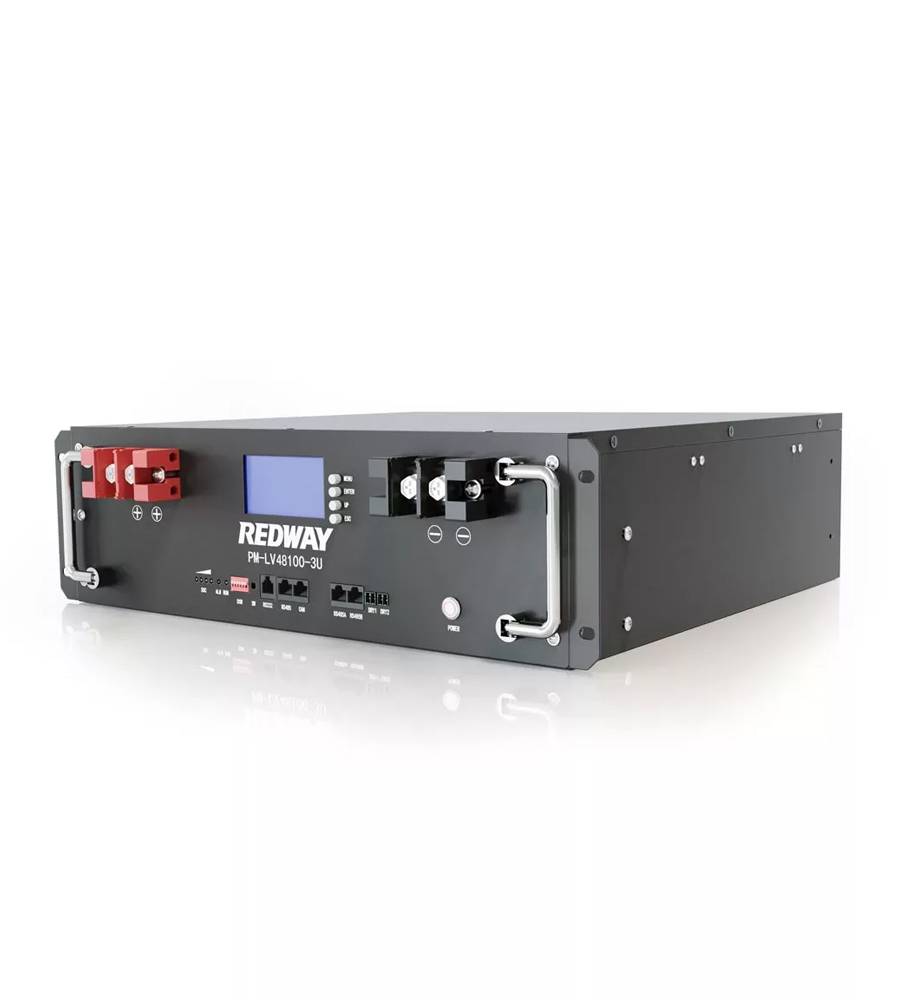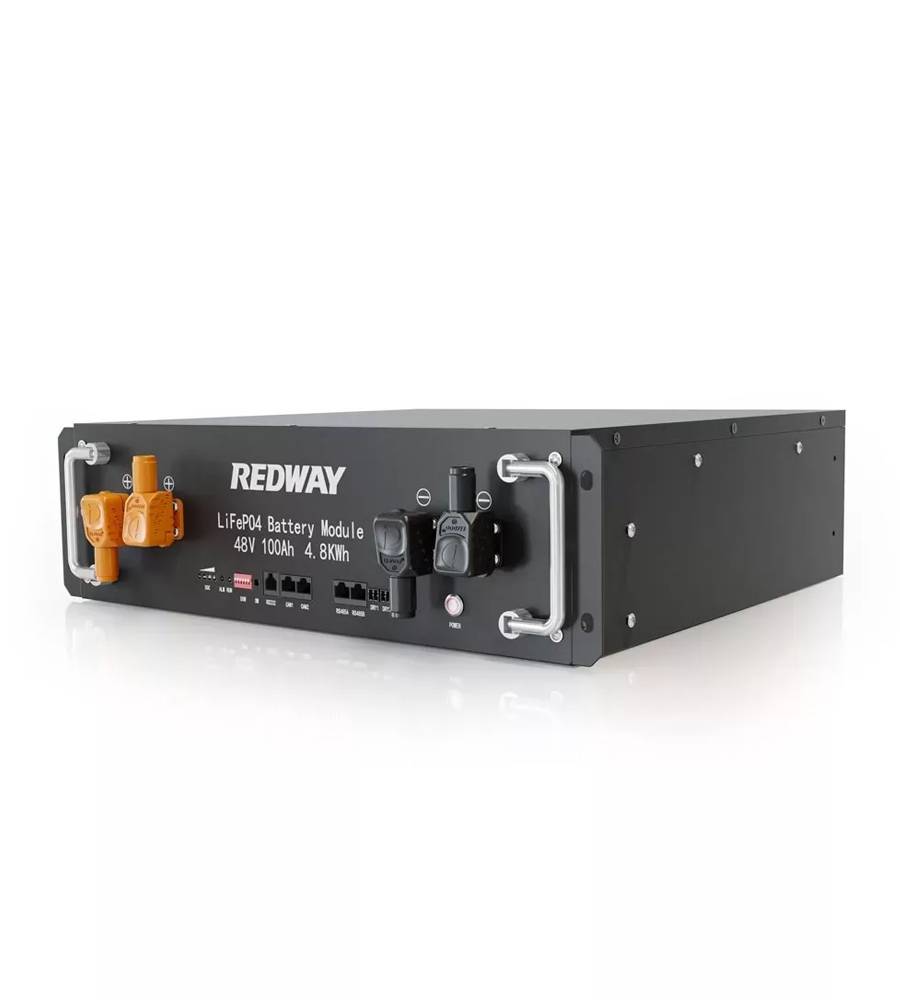- Forklift Lithium Battery
-
48V
- 48V 210Ah
- 48V 300Ah
- 48V 420Ah (949 x 349 x 569 mm)
- 48V 420Ah (950 x 421 x 450 mm)
- 48V 456Ah
- 48V 460Ah (830 x 630 x 590 mm)
- 48V 460Ah (950 x 421 x 450 mm)
- 48V 460Ah (800 x 630 x 600 mm)
- 48V 460Ah (820 x 660 x 470 mm)
- 48V 500Ah
- 48V 560Ah (810 x 630 x 600 mm)
- 48V 560Ah (950 x 592 x 450 mm)
- 48V 600Ah
- 48V 630Ah
-
48V
- Lithium Golf Cart Battery
- 12V Lithium Battery
12V 150Ah Lithium RV Battery
Bluetooth App | BCI Group 31
LiFePO4 Lithium
Discharge Temperature -20°C ~ 65°C
Fast Charger 14.6V 50A
Solar MPPT Charging - 24V Lithium Battery
- 36V Lithium Battery
- 48V Lithium Battery
-
48V LiFePO4 Battery
- 48V 50Ah
- 48V 50Ah (for Golf Carts)
- 48V 60Ah (8D)
- 48V 100Ah (8D)
- 48V 100Ah
- 48V 100Ah (Discharge 100A for Golf Carts)
- 48V 100Ah (Discharge 150A for Golf Carts)
- 48V 100Ah (Discharge 200A for Golf Carts)
- 48V 150Ah (for Golf Carts)
- 48V 160Ah (Discharge 100A for Golf Carts)
- 48V 160Ah (Discharge 160A for Golf Carts)
-
48V LiFePO4 Battery
- 60V Lithium Battery
-
60V LiFePO4 Battery
- 60V 20Ah
- 60V 30Ah
- 60V 50Ah
- 60V 50Ah (Small Size / Side Terminal)
- 60V 100Ah (for Electric Motocycle, Electric Scooter, LSV, AGV)
- 60V 100Ah (for Forklift, AGV, Electric Scooter, Sweeper)
- 60V 150Ah (E-Motocycle / E-Scooter / E-Tricycle / Tour LSV)
- 60V 200Ah (for Forklift, AGV, Electric Scooter, Sweeper)
-
60V LiFePO4 Battery
- 72V~96V Lithium Battery
- Rack-mounted Lithium Battery
- E-Bike Battery
- All-in-One Home-ESS
- Wall-mount Battery ESS
-
Home-ESS Lithium Battery PowerWall
- 24V 100Ah 2.4kWh PW24100-S PowerWall
- 48V 50Ah 2.4kWh PW4850-S PowerWall
- 48V 50Ah 2.56kWh PW5150-S PowerWall
- 48V 100Ah 5.12kWh PW51100-F PowerWall (IP65)
- 48V 100Ah 5.12kWh PW51100-S PowerWall
- 48V 100Ah 5.12kWh PW51100-H PowerWall
- 48V 200Ah 10kWh PW51200-H PowerWall
- 48V 300Ah 15kWh PW51300-H PowerWall
PowerWall 51.2V 100Ah LiFePO4 Lithium Battery
Highly popular in Asia and Eastern Europe.
CE Certification | Home-ESS -
Home-ESS Lithium Battery PowerWall
- Portable Power Stations
We accept OEM, ODM and SKD orders
Telecom Lithium Batteries Factory Wholesale
Redway Power
Telecom Lithium Batteries, One-Stop Solution
Redway Power is a forefront manufacturer of Telecom Lithium Batteries, specifically engineered for telecommunication infrastructure. These rechargeable lithium-ion batteries play a critical role in providing reliable backup power to ensure uninterrupted communication services during power disruptions.
Redway's Telecom Lithium Batteries stand out with their high energy density, extended lifespan, and rapid charging capabilities, offering superior performance compared to traditional batteries. As a leader in the field, Redway Power's commitment to innovation ensures that Telecom Lithium Batteries contribute to the seamless operation and continuity of telecommunication networks, emphasizing efficiency, reliability, and advanced technology in supporting critical communication infrastructure.
Redway Power for Batteries OEM/ODM
Best Telecom Lithium Batteries Manufacturer 2024
Telecom Lithium Batteries Wholesale
Redway Power is a forefront manufacturer of telecom lithium batteries, specifically engineered for telecommunication infrastructure. These rechargeable lithium-ion batteries play a critical role in providing reliable backup power to ensure uninterrupted communication services during power disruptions. Redway's telecom lithium batteries stand out with their high energy density, extended lifespan, and rapid charging capabilities, offering superior performance compared to traditional batteries. Trust Redway Power for innovative and reliable telecom lithium batteries that contribute to the seamless operation and continuity of telecommunication networks.
What is the wholesale price of lithium battery?
You can click contact us or phone call us. We will give you multiple options of price.
Is Redway Power a trading company or factory?
Redway Power is a company with its own factory, integrating research, development, production, and sales.
How about the quality of Redway's LiFePo4 Battery product?
Redway Power boasts over 12 years of experience in LiFePO4 battery production and is an authorized supplier for CATL and BYD.
Can you do an OEM/ODM project?
Yes, we have engineers available to assist in designing and developing any related products.
What’s your MOQ?
MOQ varies according to battery voltage and capacity.
What payment terms can we accept?
We accept TT/Paypal/West Union, etc.
Telecom Lithium Batteries Knowledge
Telecom lithium batteries are rechargeable energy storage devices designed for telecommunications. They utilize advanced lithium-ion or lithium iron phosphate chemistries, offering higher energy density, longer lifespan, and faster charging than lead-acid batteries. Lightweight and compact, they provide reliable backup power to telecom towers, ensuring uninterrupted operation during outages. Compatible with renewable energy sources, they enable sustainable off-grid installations. With superior performance and environmental benefits, telecom lithium batteries power modern communication networks efficiently.
Yes, telecom batteries and cell phone tower batteries are essentially the same. Both serve the telecommunications industry by providing backup power to ensure uninterrupted service for communication systems, including cell towers, base stations, and repeater stations during power outages or fluctuations.
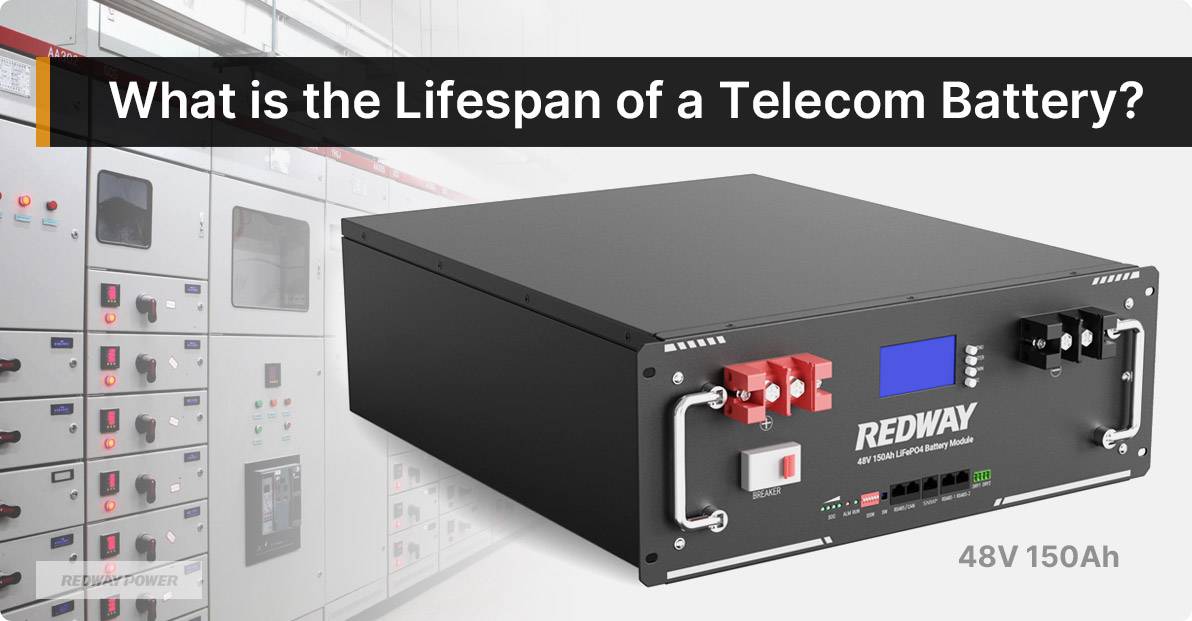
Commonly used batteries in telecom towers include lead-acid batteries, lithium-ion batteries, nickel-cadmium (Ni-Cd) batteries, and nickel-metal hydride (Ni-MH) batteries. Lead-acid batteries are traditional due to their reliability, while lithium-ion batteries are increasingly preferred for their higher energy density and lower maintenance requirements.
Telecom batteries serve several critical functions: they provide backup power during electrical outages, stabilize power supply for telecommunications equipment, and support load balancing during peak demand. These functions ensure continuous operation of communication systems, maintaining network reliability and connectivity.
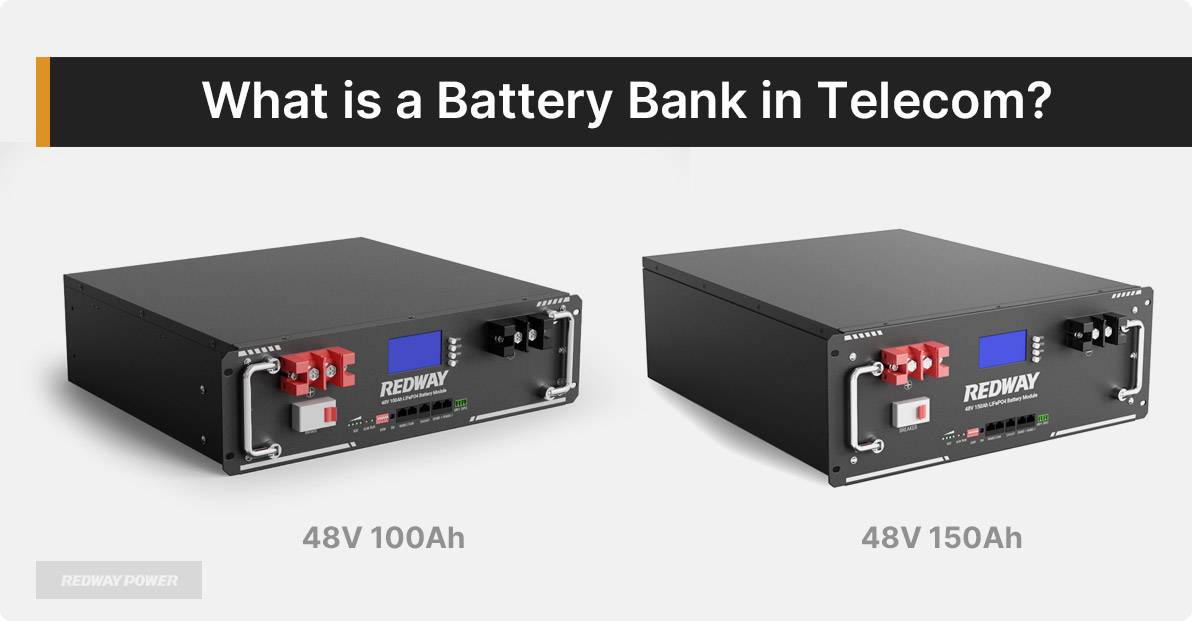
The benefits of using telecom batteries include enhanced network reliability during power outages, reduced maintenance needs (especially with lithium-ion options), longer lifespan, and improved energy efficiency. These advantages contribute to lower operational costs and ensure consistent performance of essential telecommunications infrastructure.
Yes, Redway Power’s Telecom Lithium Batteries are specifically engineered for telecommunication infrastructure, making them suitable for a wide range of applications within this sector.
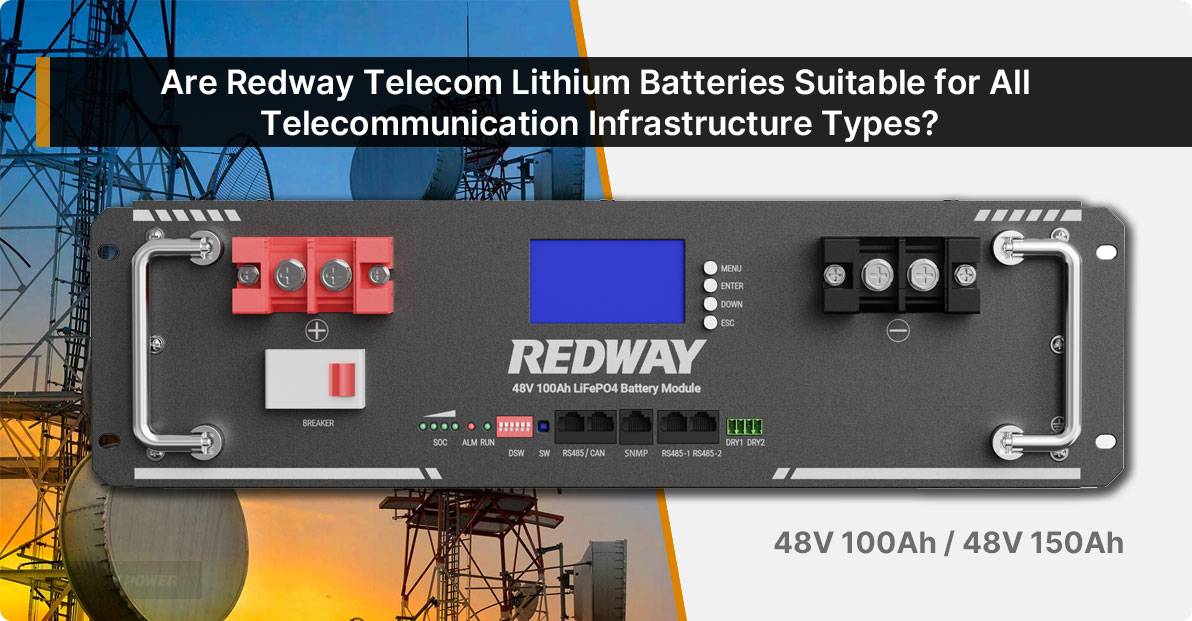
What are the primary functions of a telecom battery?
The primary functions of a telecom battery include providing backup power during outages, ensuring uninterrupted service for communication systems. They support load balancing by supplying additional power during peak demand and stabilize the overall power supply, preventing overloads and maintaining consistent operation of critical infrastructure.
What types of telecom batteries are commonly used?
Common types of telecom batteries include Valve Regulated Lead Acid (VRLA) batteries, Lithium-ion batteries, and Gel batteries. VRLA batteries are popular for their maintenance-free operation and safety in limited ventilation environments. Lithium-ion batteries are increasingly favored for their longer lifespan and higher energy density, making them suitable for various telecom applications.
How do telecom tower batteries ensure uninterrupted service?
Telecom tower batteries ensure uninterrupted service by providing immediate backup power during electrical outages or fluctuations. They activate automatically when the main power supply fails, allowing communication systems to continue operating without interruption. This reliability is crucial for maintaining connectivity in emergencies and supporting essential telecommunications infrastructure.
What features should telecom battery backup systems have?
Telecom battery backup systems should have features such as automatic activation during power failures, high energy density for compact installations, and robust safety mechanisms to prevent overcharging or overheating. Additionally, they should be adaptable to various environmental conditions and include monitoring systems for performance assessment.
What advantages do telecom lithium batteries offer over lead-acid batteries?
Telecom lithium batteries offer several advantages over lead-acid batteries, including longer lifespan, faster charging times, and higher energy density. They are lighter and require less maintenance, making them more efficient for telecommunications applications. Lithium batteries also perform better in extreme temperatures and can handle deeper discharges without damage.
What applications typically use a 12V telecom battery?
A 12V telecom battery is commonly used in applications such as cellular base stations, remote communication sites, and small data centers. These batteries provide reliable backup power for essential telecommunications equipment, ensuring continuous operation during outages or fluctuations in the main power supply.
Why is a 48V telecom battery preferred for certain systems?
A 48V telecom battery is preferred for certain systems due to its ability to efficiently power larger telecommunications equipment while reducing current flow, which minimizes energy loss. This voltage level is optimal for long-distance transmission and supports high-capacity applications like cell towers and data centers.
What benefits do lithium-ion batteries provide for telecom towers?
Lithium-ion batteries provide significant benefits for telecom towers, including longer lifespan, reduced weight, and higher energy efficiency compared to traditional lead-acid options. They offer faster charging capabilities and better performance in extreme temperatures, ensuring reliable power supply for critical telecommunications infrastructure.
How do cell phone tower batteries support network reliability?
Cell phone tower batteries support network reliability by acting as backup power sources during outages or disruptions in the main electricity supply. They ensure that communication services remain operational at all times, which is essential for maintaining connectivity and supporting emergency communications.
What role do backup batteries play in cell phone towers?
Backup batteries play a crucial role in cell phone towers by providing immediate power when the main supply fails. They ensure continuous operation of communication equipment, preventing service interruptions. This reliability is vital for maintaining network performance and supporting user connectivity during emergencies or power outages.
Where can you purchase cell phone tower batteries?
You can purchase cell phone tower batteries from specialized suppliers like StorEn Technologies and Tycorun, which offer various telecom battery options. Online platforms such as Alibaba and EverExceed also provide a range of lithium-ion and lead-acid batteries suitable for cell towers, allowing for easy comparison and ordering.
How does a battery backup system enhance cell phone tower performance?
A battery backup system enhances cell phone tower performance by providing reliable power during outages or fluctuations in the main supply. This ensures continuous operation of communication equipment, preventing service interruptions and maintaining network reliability, which is essential for user connectivity and emergency communications.
Which companies are leading manufacturers of telecom batteries?
Leading manufacturers of telecom batteries include East Penn Manufacturing, Exide Technologies, Victron Energy, NorthStar Batteries, and Saft. These companies are known for producing high-quality batteries designed for telecommunications applications, ensuring reliability and efficiency in various environments.
How can you find reliable telecom battery suppliers?
To find reliable telecom battery suppliers, search online directories and industry-specific websites. Joining telecommunications forums or networks can provide recommendations from professionals. Additionally, attending trade shows or contacting manufacturers directly can help identify reputable suppliers with proven track records in the industry.
What is the role of lithium-ion batteries in UPS systems?
Lithium-ion batteries play a crucial role in UPS systems by providing efficient backup power during outages. They offer higher energy density, faster charging times, and longer lifespans compared to traditional lead-acid batteries. This ensures that critical systems remain operational without interruption during power disruptions.
How do UPS lithium batteries improve power reliability for telecommunications?
UPS lithium batteries improve power reliability for telecommunications by delivering consistent backup power with minimal downtime. Their rapid charging capabilities ensure that they are ready to supply energy when needed, while their longer lifespan reduces the frequency of replacements, enhancing overall system reliability and efficiency.
What are the advantages of using lithium batteries in UPS applications?
The advantages of using lithium batteries in UPS applications include longer lifespan, faster charging times, lighter weight, and higher energy density. They require less maintenance than lead-acid batteries and perform better in extreme temperatures, making them ideal for critical applications where reliability is essential.
What are the regulations for shipping lithium batteries via UPS?
Shipping lithium batteries via UPS requires compliance with specific regulations due to safety concerns. Batteries must be properly packaged to prevent short circuits and damage during transit. Additionally, they must be labeled according to IATA guidelines, indicating whether they are rechargeable or non-rechargeable and including necessary handling instructions.
Telecom Battery Overview and Applications
What are telecom batteries used for in the telecommunication industry?
Telecom batteries are used as backup power for communication base stations to ensure reliable energy storage power. At this stage, most of the telecom batteries used in the field of communication backup power supply are telecom lithium batteries, with a small part being ternary lithium batteries.
- Backup Power for Communication Base Stations:
- Telecom batteries serve as backup power sources for communication base stations.
- They provide reliable energy storage power, ensuring uninterrupted communication services.
- Utilization of Telecom Lithium Batteries:
- In the field of communication backup power supply, telecom lithium batteries are the most commonly used.
- These batteries offer efficient energy storage and reliable performance.
- Ternary Lithium Batteries in Telecom Applications:
- A small portion of telecom batteries in communication backup power supply consists of ternary lithium batteries.
- These batteries provide an alternative option for specific requirements.
Telecom batteries are essential for the telecommunication industry, serving as backup power for communication base stations. They ensure reliable energy storage power, supporting uninterrupted communication services. Telecom lithium batteries are widely used in communication backup power supply, while a smaller portion consists of ternary lithium batteries, offering flexibility for specific requirements.
What Features Does the BMS Offer for Battery Management?
A Battery Management System (BMS) provides essential features for battery management. It includes temperature monitoring, where the BMS tracks the temperatures across the battery pack and regulates them within a specific range for optimal performance. The BMS also monitors voltage, current, and other parameters to ensure safe and efficient battery operation. By utilizing a BMS, battery systems can be effectively managed and their performance optimized.
- Temperature Monitoring: The BMS tracks the temperatures across the battery pack and maintains them within a specific range for optimal performance.
- Voltage and Current Monitoring: The BMS continuously monitors the voltage and current of the battery to ensure safe and efficient operation.
- Parameter Regulation: The BMS controls valves and other mechanisms to regulate parameters like temperature, ensuring the battery operates within safe limits.
Why Telecom Batteries Offer Unique Benefits and Features?
Telecom batteries, including lead-acid and lithium-ion types, offer unique benefits and features for telecommunications applications. These batteries provide high energy density, ensuring efficient power storage in a compact form. They also have a long lifespan, superior cyclic performance, and can be cost-effective compared to other battery types. Telecom batteries play a vital role in providing reliable power supply for critical telecommunications infrastructure.
- High Energy Density: Telecom batteries, especially lithium-ion variants, provide high energy density, allowing them to store more energy in a compact and lightweight form.
- Long Lifespan: Designed for continuous operation, telecom batteries have a long lifespan, ensuring reliable power supply over an extended period.
- Superior Cyclic Performance: Telecom batteries, particularly lead-acid types, exhibit excellent cyclic performance, withstanding repeated charge and discharge cycles without significant degradation.
How do telecom batteries support solar power systems in the telecom industry?
Telecom batteries support solar power systems in the telecom industry by storing energy generated from solar panels. They play a vital role in ensuring a resilient and uninterrupted power supply, even when the grid fails. This enables telecom systems to operate efficiently and sustainably, reducing reliance on traditional power sources.
- Storage of Solar Energy:
- Telecom batteries support solar power systems by storing the energy generated from solar panels.
- This stored energy can be utilized during times when solar power generation is low or unavailable.
- Resilient and Uninterrupted Power Supply:
- Telecom batteries ensure a resilient and uninterrupted power supply for telecom systems, even when the grid fails.
- They provide backup power, allowing continuous operation and communication services.
- Efficiency and Sustainability:
- By integrating telecom batteries with solar power systems, telecom operations become more efficient and sustainable.
- This reduces reliance on traditional power sources, leading to cost savings and environmental benefits.
Telecom batteries play a crucial role in supporting solar power systems in the telecom industry. By storing energy generated from solar panels, these batteries ensure a resilient and uninterrupted power supply, even when the grid fails. This integration enhances efficiency and sustainability, reducing reliance on traditional power sources and benefiting both telecom operations and the environment.
What are the advantages of using lithium-ion batteries for telecom towers?
Lithium-ion batteries offer more reliable performance, require less maintenance, and have a higher power density than lead-acid batteries. They last 2-3 times longer, resulting in fewer replacements and lower labor costs.
- More Reliable Performance:
- Lithium-ion batteries provide more reliable performance compared to lead-acid batteries.
- They offer consistent power output and are less prone to issues like sulfation.
- Lower Maintenance Requirements:
- Telecom towers equipped with lithium-ion batteries require less maintenance.
- Unlike lead-acid batteries, lithium-ion batteries do not require regular watering or equalization charging.
- Higher Power Density:
- Lithium-ion batteries have a higher power density, meaning they can store more energy in a smaller and lighter form.
- This allows for more compact battery installations and reduces the space required for telecom tower setups.
- Longer Lifespan and Cost Savings:
- Lithium-ion batteries last 2-3 times longer than lead-acid batteries, reducing the frequency of battery replacements.
- This results in lower labor costs and longer intervals between battery maintenance.
Lithium-ion batteries offer significant advantages for telecom towers. They provide more reliable performance, require less maintenance, and have a higher power density compared to lead-acid batteries. With a longer lifespan and reduced labor costs, telecom towers equipped with lithium-ion batteries experience improved efficiency and cost savings.
What is the significance of a 48V telecom battery in telecommunication applications?
A 48V telecom battery is significant in telecommunication applications as it provides enough power to support telecom signals while ensuring safety for human interaction. The negative polarity of the 48V DC power supply reduces the risk of electrical shock.
- Powering Telecom Signals:
- A 48V telecom battery provides sufficient power to support telecom signals in telecommunication applications.
- This voltage level ensures reliable operation and efficient communication.
- Safety for Human Interaction:
- The negative polarity of the 48V DC power supply reduces the risk of electrical shock during telecom activities.
- It enhances safety for technicians and other individuals working with telecommunication equipment.
- Industry Standard:
- The 48V voltage level has become the industry standard for telecom and wireless networks.
- It offers compatibility and consistency across various telecom applications.
The use of a 48V telecom battery is of utmost significance in telecommunication applications. It provides sufficient power to support telecom signals while ensuring safety for human interaction. The negative polarity of the 48V DC power supply enhances safety measures, making it the industry standard for telecom and wireless networks.
How do telecom tower batteries support the operation of telecommunication towers?
Telecom tower batteries are installed in cell towers to power the base stations and provide backup power. They play a significant role in ensuring uninterrupted operation and continuous communication services, replacing the main power supply during electrical breakdowns or power outages.
- Powering Base Stations:
- Telecom tower batteries are responsible for powering the base stations installed in cell towers.
- They provide the necessary energy to support the communication infrastructure.
- Backup Power:
- Telecom tower batteries serve as backup power sources for telecommunication towers.
- In the event of an electrical breakdown or power outage, they replace the main power supply, ensuring uninterrupted operation.
- Continuous Communication Services:
- By providing backup power, telecom tower batteries enable continuous communication services.
- They ensure that telecommunication towers remain operational even during power disruptions.
Telecom tower batteries are crucial for the operation of telecommunication towers. Installed in cell towers, these batteries power the base stations and provide backup power. By replacing the main power supply during electrical breakdowns or power outages, they ensure uninterrupted operation and continuous communication services.
Telecom Battery Types and Brands
How does a 908dft battery differ from other telecom batteries?
The 908dft battery is a specific type of telecom battery that differs from others in its design and characteristics. Telecom batteries can vary in terms of technology, capacity, and performance, including factors such as voltage, cycle life, energy density, and maintenance requirements.
- Distinguishing Features:
- The 908dft battery is a specialized telecom battery with its own set of design and characteristics.
- While specific details about the 908dft battery may be limited, it is important to recognize that telecom batteries can have unique features based on their intended applications.
- Variation in Technology and Performance:
- Telecom batteries can vary in terms of the technology used, such as lead-acid or lithium-ion.
- Factors like capacity, voltage, cycle life, energy density, and maintenance requirements can also differ between different telecom battery models.
- Considerations for Telecom Battery Selection:
- When choosing a telecom battery, it is essential to consider the specific requirements of the application.
- Factors such as power needs, runtime expectations, environmental conditions, and budget should be taken into account.
The 908dft battery represents a specific type of telecom battery with its own unique design and characteristics. While details about the 908dft battery may be limited, it is important to recognize the variation in technology, performance, and features among different telecom battery models. When selecting a telecom battery, it is crucial to consider the specific requirements of the application and factors like power needs, runtime expectations, environmental conditions, and budget.
What are the benefits of using C&D, Exide, Northstar, or SBS190F telecom batteries?
C&D, Exide, Northstar, and SBS190F telecom batteries offer reliable performance, long lifespan, high energy density, and superior shelf life. Designed for telecom applications, they provide efficient and dependable power solutions.
- Reliable Performance:
- C&D, Exide, Northstar, and SBS190F telecom batteries are known for their reliable performance.
- They deliver consistent power output, ensuring uninterrupted operation.
- Long Lifespan:
- These batteries have a long lifespan, providing extended usage and cost savings.
- They are built to withstand the demands of telecom applications.
- High Energy Density and Superior Shelf Life:
- C&D, Exide, Northstar, and SBS190F batteries offer high energy density, allowing for efficient energy storage in a compact form.
- They also have superior shelf life, ensuring reliable performance over an extended period.
C&D, Exide, Northstar, and SBS190F are reputable brands in the telecom battery industry, offering a range of benefits. These batteries provide reliable performance, long lifespan, high energy density, and superior shelf life. Designed specifically for telecom applications, they offer efficient and dependable power solutions, meeting the demanding requirements of the industry.
How does the Shoto 6 FMX 200 battery perform in telecom applications?
The Shoto 6 FMX 200 battery is a high-capacity lead-acid battery used in telecom applications such as telecom sites, base stations, and UPS systems. With its 12V nominal voltage and compact dimensions, it provides reliable power storage, ensuring uninterrupted operation and efficient performance.
- High-Capacity Lead-Acid Battery:
- The Shoto 6 FMX 200 battery is a high-capacity lead-acid battery, providing ample power storage for telecom applications.
- Its design and construction are optimized to meet the demanding requirements of telecom sites, base stations, and UPS systems.
- Reliable Power Storage:
- With a 12V nominal voltage, the Shoto 6 FMX 200 battery delivers reliable power storage for telecom equipment.
- It ensures uninterrupted operation and efficient performance, even during power disruptions.
- Compact and Versatile:
- The Shoto 6 FMX 200 battery features compact dimensions of 559mm x 125mm x 315mm, allowing for easy installation in various telecom applications.
- Its versatility makes it suitable for telecom sites, base stations, and UPS systems.
The Shoto 6 FMX 200 battery is a high-capacity lead-acid battery designed for telecom applications. With its reliable power storage, 12V nominal voltage, and compact dimensions, it ensures uninterrupted operation and efficient performance for telecom equipment. Whether used in telecom sites, base stations, or UPS systems, the Shoto 6 FMX 200 battery provides reliable power storage for uninterrupted communication services.
How does the Victron Energy 12V 200Ah AGM telecom battery compare to other options?
The Victron Energy 12V 200Ah AGM telecom battery is a sealed, maintenance-free battery designed for telecom applications. AGM batteries like the Victron Energy 12V 200Ah offer deep cycling capabilities and are suitable for high-current discharge applications. These batteries provide reliable and efficient power storage for telecom systems.
- Sealed and Maintenance-Free Design:
- The Victron Energy 12V 200Ah AGM telecom battery features a sealed design, eliminating the need for maintenance like watering.
- It offers hassle-free operation, allowing for easy integration into telecom systems.
- Deep Cycling Capabilities:
- AGM batteries, including the Victron Energy 12V 200Ah, are capable of deep cycling without compromising their performance.
- They can handle repeated charge and discharge cycles, ensuring reliable power storage for telecom applications.
- Suitable for High-Current Discharge Applications:
- AGM batteries are particularly suitable for high-current discharge applications, making them ideal for telecom systems with demanding power requirements.
- The Victron Energy 12V 200Ah AGM telecom battery can provide steady and efficient power delivery.
The Victron Energy 12V 200Ah AGM telecom battery is a sealed, maintenance-free battery designed for telecom applications. AGM batteries like the Victron Energy 12V 200Ah offer deep cycling capabilities and are suitable for high-current discharge applications. With their reliable and efficient power storage, these batteries provide a dependable solution for telecom systems.
How does the 6 FMX 150B battery perform in telecom applications?
The 6 FMX 150B battery is a high-capacity battery designed for telecom applications. With its 12V nominal voltage, long float charge life, and suitability for various discharge durations, it provides reliable power storage for telecom systems, ensuring uninterrupted operation and efficient performance.
- High-Capacity Battery:
- The 6 FMX 150B battery is a high-capacity battery designed to meet the power requirements of telecom applications.
- It offers ample power storage to ensure uninterrupted operation of telecom systems.
- Long Float Charge Life:
- With a float charge life of over 12 years, the 6 FMX 150B battery provides long-lasting power storage for telecom equipment.
- It offers reliable performance over an extended period, reducing the need for frequent battery replacements.
- Suitable for Various Discharge Durations:
- The 6 FMX 150B battery is well suited for telecom applications with varying discharge durations, ranging from 30 minutes to 10 hours.
- It can handle different power demands, ensuring efficient performance in telecom systems.
The 6 FMX 150B battery is a high-capacity battery designed specifically for telecom applications. With its 12V nominal voltage, long float charge life of over 12 years, and suitability for various discharge durations, it provides reliable power storage for telecom systems. Whether used in telecom systems, UPS, or security systems, the 6 FMX 150B battery ensures uninterrupted operation and efficient performance.
What are the features of the Imam telecom battery?
Imam Telecom offers a range of products including telecom batteries with features suitable for various mobile devices. These batteries may include fast charging, high energy density, and compatibility with different types of mobile phones. For detailed information about the features of the Imam telecom battery, it is recommended to refer to the specific product descriptions and specifications provided by Imam Telecom.
- Wide Compatibility and Fast Charging:
- Imam Telecom batteries are designed to be compatible with various mobile devices, ensuring broad usage.
- They may offer fast charging capabilities, allowing for quick and efficient power replenishment.
- High Energy Density:
- Imam Telecom batteries are known for their high energy density, providing ample power storage for extended usage.
- This feature ensures that mobile devices can operate for longer periods without the need for frequent recharging.
- Product-specific Features:
- It is important to refer to the specific product descriptions and specifications provided by Imam Telecom for detailed information about the features of their telecom batteries.
- Each product may have unique features tailored to meet the specific needs and requirements of mobile devices.
How does the RB telecom battery compare to other options?
The RB telecom battery’s comparison to other options depends on factors such as battery type, capacity, cycle life, energy density, maintenance requirements, and cost. It is important to review the specifications and performance characteristics of the RB telecom battery and compare them to other available options to determine its advantages and suitability for specific telecom applications.
- Factors for Comparison:
- When comparing telecom batteries, factors such as battery type, capacity, cycle life, energy density, maintenance requirements, and cost should be considered.
- These factors help determine the advantages and suitability of the RB telecom battery compared to other options.
- Reviewing Specifications and Performance:
- To assess the RB telecom battery’s advantages, it is important to review its specifications and performance characteristics.
- Comparing these details with those of other available options will provide insights into its unique features and capabilities.
- Suitability for Specific Telecom Applications:
- The RB telecom battery’s suitability for specific telecom applications can be determined by evaluating its performance in relation to the specific requirements and demands of such applications.
- Comparing it to other options will help identify the best choice for different telecom scenarios.
Comparing the RB telecom battery to other options involves considering factors such as battery type, capacity, cycle life, energy density, maintenance requirements, and cost. By reviewing the specifications and performance characteristics of the RB telecom battery and comparing them to other available options, its advantages and suitability for specific telecom applications can be determined.
What are the advantages of using Victron telecom batteries?
Victron telecom batteries offer advantages such as long service life, high energy density, low self-discharge rates, and compatibility with various telecom systems. Designed to provide efficient and dependable power storage, Victron telecom batteries are a reliable choice for telecom applications.
- Long Service Life:
- Victron telecom batteries are designed to have a long service life, providing extended usage and reliability.
- This feature reduces the need for frequent battery replacements and ensures consistent performance over time.
- High Energy Density:
- Victron telecom batteries offer high energy density, allowing for efficient power storage in a compact form.
- This feature enables telecom systems to operate efficiently and effectively.
- Low Self-Discharge Rates:
- Victron telecom batteries have low self-discharge rates, meaning they retain their charge for longer periods without regular recharging.
- This feature ensures that the batteries are ready for use when needed, even after extended periods of storage.
Victron telecom batteries offer advantages such as long service life, high energy density, low self-discharge rates, and compatibility with various telecom systems. Designed to provide efficient and dependable power storage, Victron telecom batteries are a reliable choice for telecom applications. Their long service life, high energy density, and low self-discharge rates make them ideal for powering telecom systems effectively and reliably.
Telecom Battery Backup Systems and Price
What are telecom battery backup systems and why are they important?
Telecom battery backup systems are essential for ensuring uninterrupted communication services and preventing avoidable downtime. In the event of power outages or disruptions, these systems provide backup power to telecommunication systems, safeguarding against service disruptions and maintaining connectivity. They play a crucial role in protecting vital communication infrastructure and ensuring reliable communication services for businesses and individuals.
- Uninterrupted Communication Services:
- Telecom battery backup systems are designed to provide backup power to telecommunication systems during power outages or disruptions.
- They ensure uninterrupted communication services, preventing avoidable downtime and maintaining connectivity.
- Safeguarding Against Service Disruptions:
- Telecom battery backup systems play a crucial role in safeguarding against service disruptions in the event of power outages or disruptions.
- By providing backup power, these systems help maintain connectivity and prevent the loss of vital communication services.
- Protection of Vital Communication Infrastructure:
- Telecom battery backup systems are important for protecting and preserving vital communication infrastructure.
- They ensure that critical communication systems remain operational, even during challenging situations.
Telecom battery backup systems are essential for ensuring uninterrupted communication services and preventing avoidable downtime. These systems provide backup power to telecommunication systems during power outages or disruptions, safeguarding against service disruptions and maintaining connectivity. They play a crucial role in protecting vital communication infrastructure and ensuring reliable communication services for businesses and individuals.
How do telecom backup batteries contribute to uninterrupted communication services?
Telecom backup batteries contribute to uninterrupted communication services by providing reliable power during power outages or disturbances. Equipped with backup batteries that charge from the main power supply, these batteries ensure continuous power supply to communication devices or data center equipment. UPS systems connected to the backup batteries seamlessly switch between the regular power supply and battery power when faced with power surges, outages, or other anomalies, ensuring uninterrupted communication services.
- Reliable Power During Outages:
- Telecom backup batteries contribute to uninterrupted communication services by providing reliable power during power outages or disturbances.
- These batteries ensure continuous power supply, preventing disruptions in communication services.
- Backup Battery Charging:
- Equipped with backup batteries, telecom systems charge these batteries from the main power supply, ensuring the availability of stored power.
- This charging process prepares the backup batteries to provide power when the main power supply is interrupted.
- Seamless Switching with UPS Systems:
- UPS (Uninterruptible Power Supply) systems connected to the backup batteries seamlessly switch between the regular power supply and battery power.
- This switching mechanism ensures uninterrupted power supply to communication devices or data center equipment during power surges, outages, or other anomalies.
Telecom backup batteries play a crucial role in ensuring uninterrupted communication services. Equipped with backup batteries that charge from the main power supply, these batteries provide reliable power during outages or disturbances. UPS systems connected to the backup batteries seamlessly switch between the regular power supply and battery power, ensuring continuous power supply and preventing disruptions in communication services.
What is the price range for telecom batteries?
The price range for telecom batteries can vary significantly, typically ranging from $1 to $5000 or more. The cost of telecom batteries depends on factors such as battery type, capacity, brand, and seller. It is advisable to check with different sellers and compare prices to get a more accurate idea of the price range for telecom batteries.
- Wide Price Range:
- Telecom batteries can be found in a wide price range, starting from as low as $1 and going up to $5000 or more.
- The price of telecom batteries depends on factors such as battery type, capacity, brand, and seller.
- Factors Affecting Cost:
- The cost of telecom batteries may vary based on the specific parameters of the batteries, such as their type and capacity.
- Brand reputation and seller pricing policies can also influence the cost of telecom batteries.
The price range for telecom batteries can vary significantly, typically ranging from $1 to $5000 or more. The cost of telecom batteries depends on factors such as battery type, capacity, brand, and seller. To get an accurate idea of the price range for telecom batteries, it is advisable to check with different sellers and compare prices.
What is the price range for telecom tower batteries?
The price of telecom tower batteries can vary depending on factors such as battery type, capacity, brand, and seller. Traditional AGM batteries of 12V 200Ah are priced around $500, while 48V lithium-ion telecom batteries can cost between $300 and $900, depending on the ampere-hours they provide. It is advisable to check with different sellers and compare prices to get an accurate idea of the price range for telecom tower batteries.
- Price Range Variation:
- Telecom tower battery prices can vary based on battery type, capacity, brand, and seller.
- Traditional AGM batteries of 12V 200Ah are generally priced around $500, while 48V lithium-ion telecom batteries can range from $300 to $900, depending on the ampere-hours they provide.
- Factors Influencing Cost:
- The specific price range may further vary based on the specific requirements and specifications of the telecom tower batteries.
- Factors such as brand reputation, battery capacity, and additional features can also influence the cost of telecom tower batteries.
The price range for telecom tower batteries can vary significantly depending on factors such as battery type, capacity, brand, and seller. Traditional AGM batteries of 12V 200Ah are generally priced around $500, while 48V lithium-ion telecom batteries can range from $300 to $900, depending on the ampere-hours they provide. It is recommended to check with different sellers and compare prices to get an accurate idea of the price range for telecom tower batteries.
Where can I find used telecom batteries for sale?
Used telecom batteries can be purchased for sale through online platforms such as Global Sources and Alibaba, offering wholesale options at factory prices. Websites like UsedShelter(dot)com and Telecom Product Profiles, LLC may also have listings for used telecom batteries. Buyers can explore local classified ads, online marketplaces, and renewable energy forums for potential sales of used telecom batteries.”
- Online Platforms for Wholesale Options:
- Global Sources and Alibaba offer wholesale options for used telecom batteries, providing buyers with access to a wide range of products at factory prices.
- These platforms allow users to compare prices, choose from different sellers, and find the best deals on used telecom batteries.
- Specialized Websites and Listings:
- Websites like UsedShelter(dot)com and Telecom Product Profiles, LLC may have listings for used telecom batteries, providing a platform for buying and selling these batteries.
- These websites focus on telecom-related products and can be a valuable resource for finding used telecom batteries.
- Local Classified Ads and Online Marketplaces:
- Buyers can also explore local classified ads and online marketplaces to find potential sales of used telecom batteries.
- Platforms like Craigslist, Facebook Marketplace, and eBay may have listings from individuals or businesses selling used telecom batteries.
Used telecom batteries can be purchased through various online platforms such as Global Sources and Alibaba, offering wholesale options at factory prices. Specialized websites like UsedShelter(dot)com and Telecom Product Profiles, LLC may also have listings for used telecom batteries. Additionally, exploring local classified ads, online marketplaces, and renewable energy forums can provide potential leads for purchasing used telecom batteries.
Where can I find wholesale telecom batteries?
Wholesale telecom batteries can be found through online platforms like Global Sources, Alibaba, and EverExceed, offering a wide range of options at competitive prices. Wholesale Batteries Direct is another online battery superstore that provides discounted prices on telecom batteries. Contacting manufacturers or authorized suppliers like Redway Power, who specialize in LiFePO4 battery production, can also offer wholesale options. It is recommended to compare prices and services from different suppliers to find the best wholesale telecom battery deals.
- Online Platforms for Wholesale Options:
- Global Sources, Alibaba, and EverExceed are online platforms that offer a wide range of wholesale telecom batteries.
- These platforms provide options from different suppliers, allowing buyers to compare prices and choose the best deals.
- Wholesale Battery Superstores:
- Wholesale Batteries Direct is an online battery superstore that offers discounted prices on telecom batteries.
- They provide a wide selection of batteries, including telecom batteries, at wholesale prices.
- Manufacturers and Authorized Suppliers:
- Manufacturers like Redway Power, specializing in LiFePO4 battery production, can offer wholesale options for telecom batteries.
- Authorized suppliers provide high-quality batteries and may offer competitive prices for wholesale purchases.
Wholesale telecom batteries can be found through online platforms like Global Sources, Alibaba, and EverExceed, offering a wide range of options at competitive prices. Wholesale Batteries Direct is another online battery superstore that provides discounted prices on telecom batteries. Manufacturers or authorized suppliers like Redway Power, specializing in LiFePO4 battery production, can also offer wholesale options. It is recommended to compare prices and services from different suppliers to find the best wholesale telecom battery deals.
Telecom Battery Technology and Advancements
What are the advantages of using lithium telecom batteries?
Lithium telecom batteries offer several advantages over other types of batteries. They provide more reliable performance, require less maintenance, and have a higher power density compared to lead-acid batteries. With a longer lifespan and higher energy density, lithium telecom batteries are a preferred choice for telecom applications. They allow for smaller and lighter battery designs, providing flexibility and efficiency in power storage solutions.
- More Reliable Performance:
- Lithium telecom batteries offer more reliable performance, ensuring a consistent power supply for telecom applications.
- They provide stable voltage output, reducing the risk of power fluctuations and ensuring uninterrupted operation.
- Less Maintenance Required:
- Compared to lead-acid batteries, lithium telecom batteries require less maintenance.
- They do not require regular topping up of electrolyte or equalization charging, simplifying the maintenance process.
- Higher Power Density:
- Lithium telecom batteries have a higher power density, allowing them to store more energy in a smaller and lighter form factor.
- This higher energy density enables telecom systems to have a smaller footprint and greater efficiency in power storage.
Lithium telecom batteries offer several advantages over other types of batteries. They provide more reliable performance, require less maintenance, and have a higher power density compared to lead-acid batteries. With a longer lifespan and higher energy density, lithium telecom batteries are a preferred choice for telecom applications. They allow for smaller and lighter battery designs, providing flexibility and efficiency in power storage solutions.
How do telecom lithium batteries differ from other types of batteries?
Telecom lithium batteries, such as lithium-ion batteries, offer several key differences compared to other types of batteries. They have the highest energy density among batteries, storing 2-3 times more energy per weight and volume than valve-regulated lead-acid (VRLA) batteries. This higher energy density is important in applications where floor space and floor loading are critical. Furthermore, lithium batteries are generally much lighter than other types of rechargeable batteries of the same size.
- Higher Energy Density:
- Telecom lithium batteries, specifically lithium-ion batteries, have the highest energy density among batteries.
- They can store 2-3 times more energy per weight and volume compared to valve-regulated lead-acid (VRLA) batteries.
- Critical Considerations:
- The higher energy density of lithium batteries is crucial in applications where floor space and floor loading are critical factors.
- Telecom systems can benefit from the compact size and higher energy storage capacity of lithium batteries.
- Lighter Weight:
- Telecom lithium batteries, including lithium-ion batteries, are generally much lighter than other types of rechargeable batteries of the same size.
- This lightweight characteristic provides advantages in terms of portability, ease of installation, and reduced weight load on telecom equipment.
What are the advantages of using lithium-ion batteries in telecom applications?
Redway Power Lithium batteries claim to outperform traditional batteries through their robust construction, which enables uninterrupted functionality and guarantees optimal performance even in challenging environments. Redway Power emphasizes their lithium batteries’ inherent safety measures and exclusive engineering, ensuring reliability and efficiency in power storage solutions.
- Robust Construction:
- Redway Power Lithium batteries are designed with robust construction to withstand various environmental challenges.
- This construction ensures uninterrupted functionality, guaranteeing optimal performance in demanding conditions.
- Inherent Safety Measures:
- Redway Power Lithium batteries prioritize safety and are engineered with exclusive safety measures.
- These safety measures enhance the reliability and stability of the batteries, ensuring safe and efficient power storage.
- Exclusive Engineering:
- Redway Power focuses on the exclusive engineering of their lithium batteries to achieve superior performance.
- This engineering expertise results in batteries that outperform traditional options, providing reliable and efficient power storage solutions.
What are the benefits of using telecom lithium ion batteries?
Telecom lithium-ion batteries offer several benefits for telecom applications. These include safety, drop-in replacement, lightweight design, longer lifespan, more usable capacity, constant power supply, temperature tolerance, and fast and safe charging. With their reliable performance, high energy density, and efficient power storage, lithium-ion batteries are an ideal choice for telecom applications.
- Safety:
- Telecom lithium-ion batteries have inherently safe chemistry, reducing the risk of accidents or malfunctions.
- This safety feature ensures the reliable and secure operation of telecom systems.
- Drop-in Replacement:
- Telecom lithium-ion batteries are available in standard industry sizes, making them compatible and easy to replace in existing systems.
- This drop-in replacement feature simplifies the upgrade process and minimizes the need for extensive system modifications.
- Lightweight:
- Telecom lithium-ion batteries weigh 50-60% less than their lead-acid equivalent batteries.
- This lightweight design enables easier handling, portability, and installation in telecom applications.
- Longest Life:
- Telecom lithium-ion batteries have longer lifespans compared to other battery types, ensuring reliable power storage over an extended period.
- This longer life span reduces the frequency of battery replacements and maintenance requirements.
- More Usable Capacity:
- Telecom lithium-ion batteries offer more usable capacity, allowing for efficient energy storage and utilization.
- This increased usable capacity ensures a more reliable and consistent power supply for telecom systems.
- Constant Power:
- Telecom lithium-ion batteries provide a constant power supply, ensuring uninterrupted operation of telecom systems.
- This feature is crucial for maintaining the reliability and performance of telecom applications.
- Temperature Tolerant:
- Telecom lithium-ion batteries are designed to withstand a wide range of temperatures, making them suitable for various environments.
- This temperature tolerance ensures the batteries can function optimally in both hot and cold conditions.
- Fast and Safe Charging:
- Telecom lithium-ion batteries can be charged quickly and safely, minimizing downtime and maximizing productivity.
- This fast and safe charging feature enhances the efficiency and reliability of telecom systems.
Telecom Battery Systems and Components
How to select the right charger for lithium trolling motor batteries?
When selecting a charger for lithium trolling motor batteries, it is crucial to match the charger’s voltage output with the battery’s voltage requirements. For example, a 12V lithium battery should be charged with a 12V charger. Using a charger with the wrong voltage can lead to damage. It is essential to ensure compatibility between the charger and the lithium trolling motor batteries to maintain optimal performance and prolong battery life.
- Charger Voltage Parameters:
- The voltage output of the charger should match the voltage requirements of the lithium trolling motor batteries.
- For example, a 12V lithium battery should be charged with a 12V charger, not a 6V or 24V charger.
- Using a charger with the wrong voltage can lead to battery or charger damage.
- Compatibility and Performance:
- Ensuring compatibility between the charger and the lithium trolling motor batteries is essential.
- Matching the voltage output of the charger with the battery’s voltage requirements ensures optimal charging performance.
- Prolonged Battery Life:
- Selecting the right charger for lithium trolling motor batteries helps prolong battery life.
- Using a charger with the correct voltage output reduces the risk of overcharging or undercharging, which can negatively impact battery health.
Selecting the right charger for lithium trolling motor batteries is crucial for maintaining optimal performance and prolonging battery life. It is essential to match the charger’s voltage output with the battery’s voltage requirements to ensure compatibility and avoid damage. By choosing the appropriate charger, users can maximize the efficiency and longevity of their lithium trolling motor batteries.
What battery do I need for my trolling motor?
When selecting a battery for a trolling motor, it is often suggested to choose a 12-volt deep cycle marine battery with at least a 110 amp-hour rating. Group 27 size or larger batteries are commonly used. The higher the amp-hour rating, the longer the run time the trolling motor will receive. It is important to consider the motor’s power requirements and select a battery that can provide sufficient power for the desired operating time.
- Battery Selection:
- It is suggested to choose a 12-volt deep cycle marine battery for a trolling motor.
- Opt for a battery with a minimum amp-hour rating of 110 to ensure sufficient power and extended run time.
- Group 27 size or larger batteries are commonly used in trolling motor applications.
- Amp-Hour Rating and Run Time:
- The higher the amp-hour rating, the longer the run time the trolling motor will receive.
- Consider the motor’s power requirements and select a battery that can provide sufficient power for the desired operating time.
Selecting the right battery is crucial for optimal performance and extended run time of a trolling motor. A 12-volt deep cycle marine battery with a minimum amp-hour rating of 110 is commonly recommended. Group 27 size or larger batteries are commonly used to ensure sufficient power and longer operating time. By choosing the appropriate battery, users can maximize the efficiency and longevity of their trolling motor.
How to select the right charger for lithium trolling motor batteries?
When selecting a charger for lithium trolling motor batteries, it is important to match the voltage output of the charger with the voltage requirements of the battery. For example, a 12V lithium battery should be charged with a 12V charger. Using a charger with the wrong voltage can damage the battery or the charger. It is crucial to consider the voltage parameters to ensure compatibility and safe charging of lithium trolling motor batteries.
- Charger Voltage Parameters:
- It is important to match the voltage output of the charger with the voltage requirements of the lithium trolling motor batteries.
- For example, a 12V lithium battery should be charged with a 12V charger, not a 6V or 24V charger.
- Using a charger with the wrong voltage can damage the battery or the charger.
- Compatibility and Safe Charging:
- Ensuring compatibility between the charger and the lithium trolling motor batteries is essential for safe charging.
- Matching the voltage output of the charger with the battery’s voltage requirements ensures efficient and reliable charging.
Selecting the right charger is crucial for safe and efficient charging of lithium trolling motor batteries. It is important to match the voltage output of the charger with the voltage requirements of the batteries to ensure compatibility and avoid damage. By choosing the appropriate charger, users can prolong the lifespan and optimize the performance of their lithium trolling motor batteries.
What battery do I need for my trolling motor?
When selecting a battery for a trolling motor, a commonly suggested option is a 12-volt deep cycle marine battery with at least a 110 amp-hour rating. Group 27 size or larger batteries are often recommended. The higher the amp-hour rating, the more run time the trolling motor will receive. It is important to consider the specific needs of the trolling motor and select a battery that can provide sufficient power for the desired operating time.
- Battery Selection:
- A commonly suggested option is a 12-volt deep cycle marine battery for a trolling motor.
- Opt for a battery with a minimum amp-hour rating of 110 to ensure sufficient power and extended run time.
- Group 27 size or larger batteries are often recommended for their capacity and performance.
- Amp-Hour Rating and Run Time:
- The higher the amp-hour rating, the more run time the trolling motor will receive.
- Consider the specific needs of the trolling motor and select a battery that can provide sufficient power for the desired operating time.
Selecting the right battery is crucial for reliable and efficient performance of a trolling motor. A 12-volt deep cycle marine battery with a minimum amp-hour rating of 110 is often recommended. Group 27 size or larger batteries are preferred for their capacity and performance. By choosing the appropriate battery, users can maximize the run time and optimize the performance of their trolling motor.
Inquiry Now














